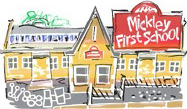The Intent of our Maths Curriculum
We want our children to be given the best start and be ready to take on the world of mathematics by the time they leave Ovingham CE First School and Mickley First School. We aim to ensure that our children develop a healthy and enthusiastic attitude towards mathematics, and help them become confident, lifelong learners.
Through our well thought-out scheme of work, we plan for our pupils to be confident mathematicians who have achieved fluency in all aspects of the curriculum. We have the highest expectations for every learner; we want our pupils to master maths and foster a growth mindset approach.
Our approach to the curriculum in mathematics is based upon a language rich, active learning experience. We believe that children learn best if they are exposed to new concepts with hands-on practice and clear modelling and repetition of key mathematical vocabulary. Our children are taught mathematical knowledge through the support of concrete resources and pictorial representations, before moving on to a more abstract approach. We ensure that they have a firm grasp of the four key calculations, (addition, subtraction, division and multiplication), so that by the time our children leave in Year 4, they are confident with number facts, abstract learning and problem solving and reasoning. Our learners can explain their thinking and reason using a high level of mathematical vocabulary.
- Concrete – children have the opportunity to use concrete objects to help them understand and explain what they are doing.
- Pictorial – children then build on this concrete approach by using pictorial representations, which can then be used to reason and solve problems.
- Abstract – With the foundations firmly laid, children can move to an abstract approach using numbers and key concepts with confidence.
Our intention for pupils, as they progress, is that they are competent in problem solving and reasoning and are able to use mathematical language confidently to explain their thinking. We aim to foster a rich learning environment whilst developing a sense of curiosity, appreciation and enjoyment of mathematics in their everyday lives.
We work with The Great North Maths Hub who supports the implementation of the mastery approach. We have been working with the Maths Hub for a number of years now and are now at the ‘Sustain’ stage where our focus is to ensure the mastery approach is fully embedded with consistency across the school.
How we Implement our Curriculum
At our schools, we teach the National Curriculum for mathematics, using the National Primary Guidance and the NCETM Curriculum Prioritisation and Professional Development Materials to support our planning, resourcing and delivery and to also develop teacher subject knowledge. We deliver the core NC aims of fluency, reasoning and problem solving in every lesson.
In response to the impact of the pandemic, the 2021/22 maths curriculum has been prioritised to follow the NCETM Curriculum Prioritisation Materials. This means that there is currently a greater emphasis upon fluency, calculation, times tables and number sense across the whole school – covered in additional maths sessions. Reception, Year 1 and Year 2 children follow the DfE endorsed Mastering Number Programme, which is impacting positively upon pupils’ number sense.
Questioning and Stem sentences
Questioning Is a key part of our maths curriculum and pupils are asked to explain their thinking and reasoning in order to develop their mathematical thinking skills and vocabulary. Teachers model the language used providing stem sentences for the children to explain their understanding of concepts.
Times tables
We know that to be fluent at arithmetic our pupils need to master their times tables up to 12 x 12. We have regular practise and weekly homework to encourage our children to practise their tables and teach using concrete and pictorial representations to develop a true understanding of times tables. Year 3 and 4 use Times Table Rockstars to develop quick fire recall.
In Nursery and Reception, we follow the Statutory Framework for the Early Years.
Mathematics ELG: Number
Children at the expected level of development will:
- Have a deep understanding of number to 10, including the composition of each number;
- Subitise (recognise quantities without counting) up to 5;
- Automatically recall (without reference to rhymes, counting or other aids) number bonds up to 5 (including subtraction facts) and some number bonds to 10, including double facts.
ELG: Numerical Patterns
Children at the expected level of development will:
- Verbally count beyond 20, recognising the pattern of the counting system;
- Compare quantities up to 10 in different contexts, recognising when one quantity is greater than, less than or the same as the other quantity;
- Explore and represent patterns within numbers up to 10, including evens and odds, double facts and how quantities can be distributed equally.
Reception Overview:
In Reception, we use White Rose Maths to inform planning. Practitioners put together games, use real world examples to nurture the enjoyment of maths from an early age. Children explore mathematical concepts and have the opportunity to use mathematical language with curiosity and without fear of making mistakes.
Year 1 Curriculum Plan Map
Year 2 Curriculum Plan Map
Year 3 Curriculum Plan Map
Year 4 Curriculum Plan Map

